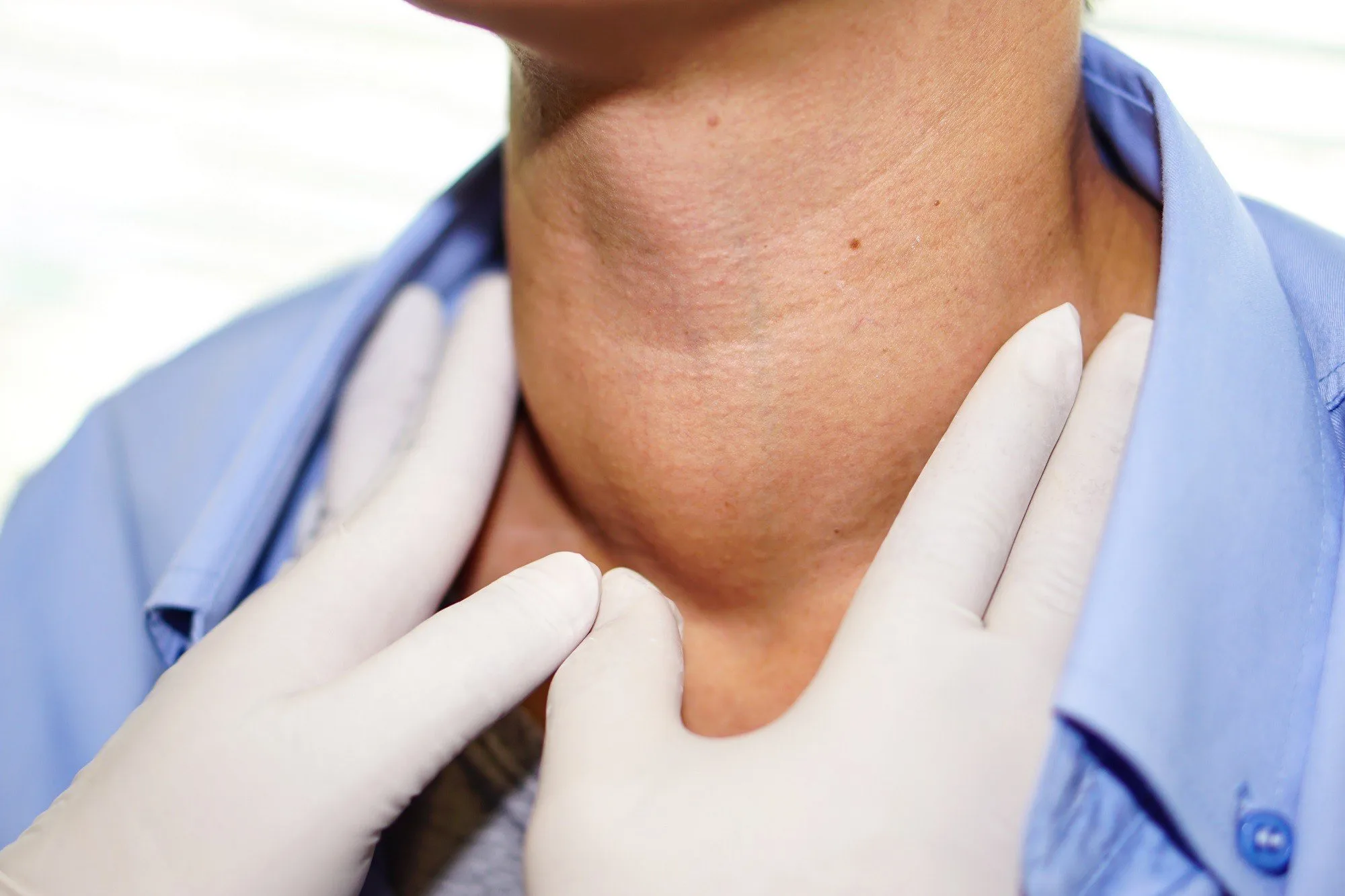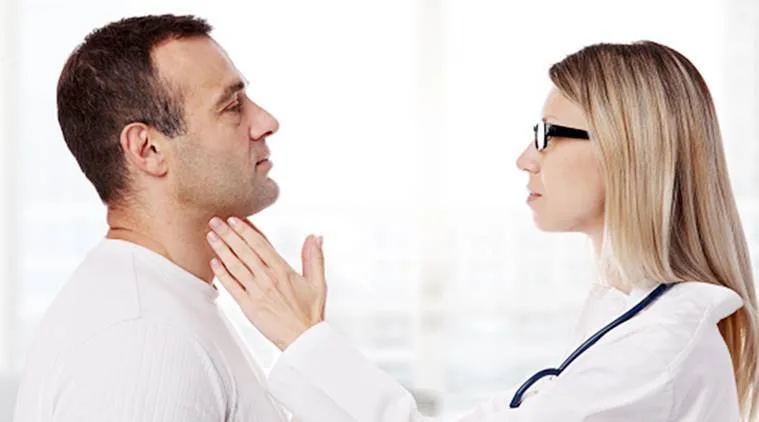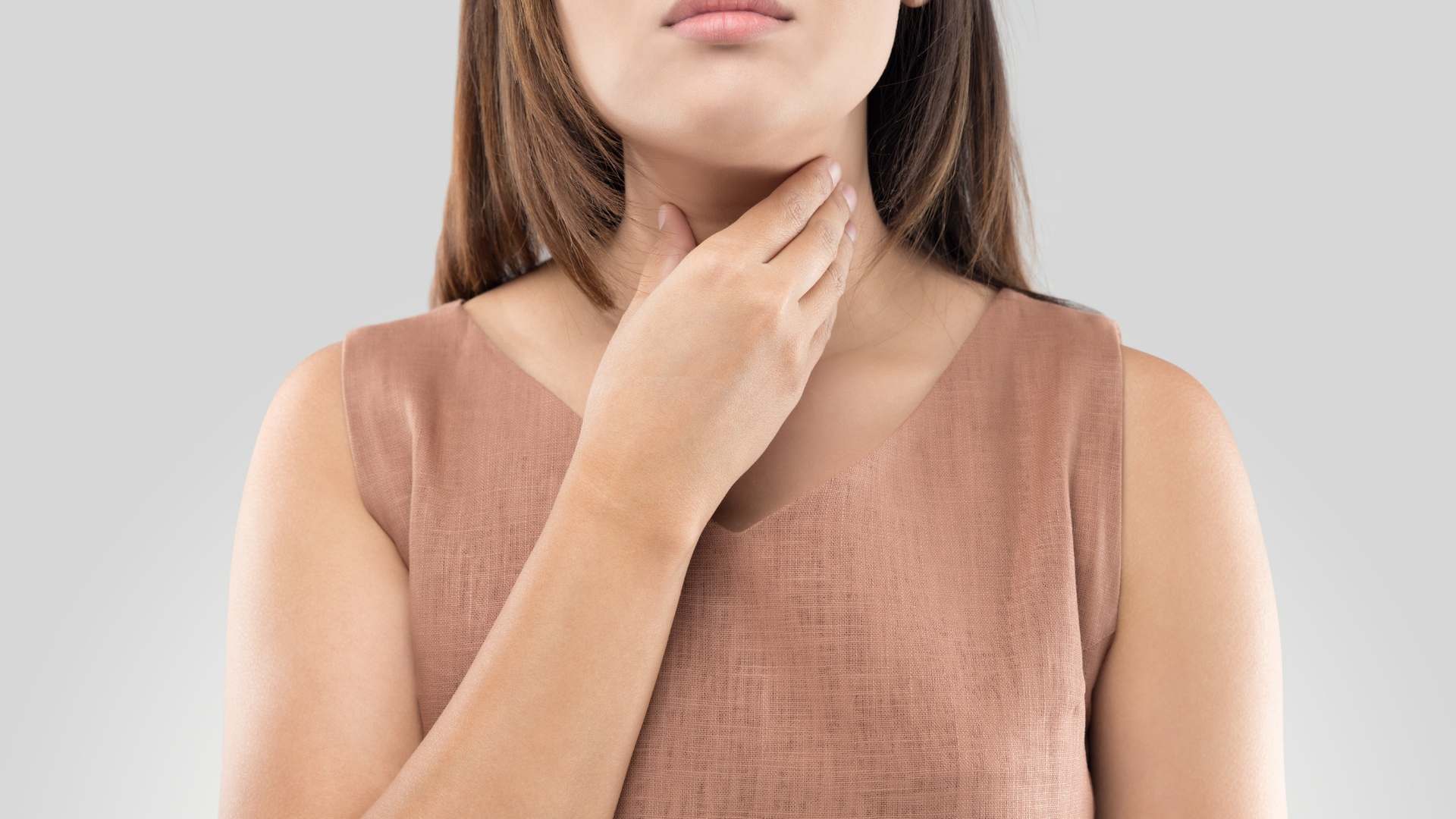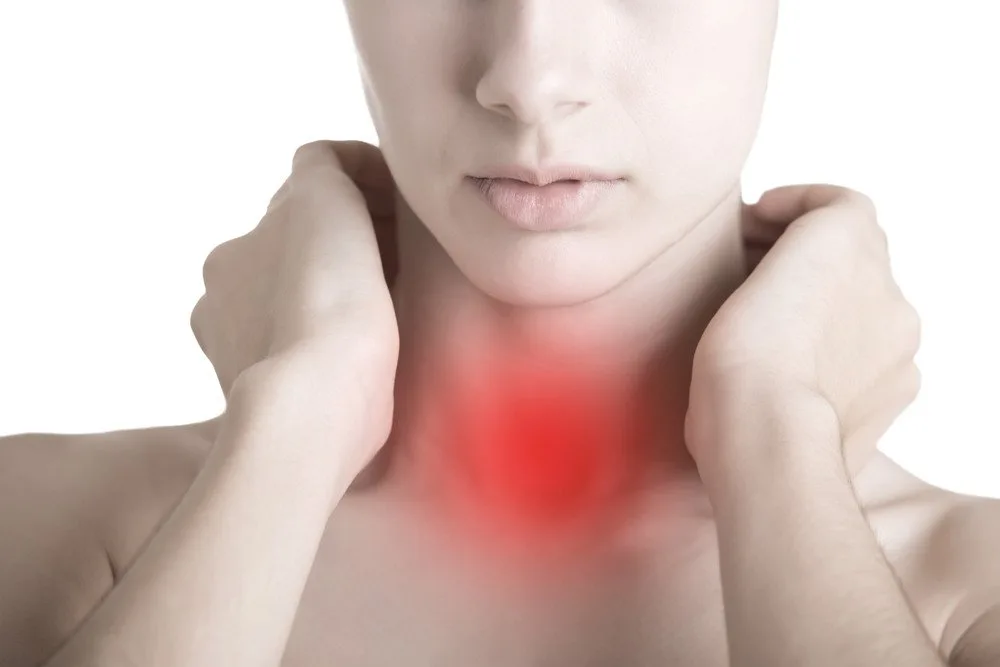Thyroid nodules are solid or fluid-filled (cystic) lumps that can develop in the thyroid gland. They are relatively common and rarely cancerous. About 70% of women above 60 years of age have nodules in their thyroid that are detected on ultrasound; in men nodules are less common but also not rare. You can have a single nodule or a cluster of nodules in this small, butterfly-shaped gland near your voice box (larynx) and in front of your windpipe (trachea).
September is Thyroid Month
Although the thyroid is small, it plays a big part in how your body works. It produces and secretes two hormones that affect your heart rate, body temperature and metabolism. Thyroid nodules are classified as cold, warm or hot. Cold nodules do not produce thyroid hormones, while warm nodules function normally and hot nodules overproduce thyroid hormones.
Thyroid Nodules

Thyroid nodules are classified as cold, warm, or hot. Cold nodules do not produce thyroid hormones, while warm nodules function normally and hot nodules overproduce thyroid hormones.
Fortunately, more than 90% are non-cancerous (benign) and cause few symptoms. These include a lump in the neck, an uncomfortable pressure sensation on the trachea, a feeling of needing to swallow, or difficulty swallowing and discomfort in the neck. Thyroid nodules are often discovered during ultrasounds, CT or MRI scans.[1]
These nodules could also, but very rarely, produce too much of the thyroid hormone, thyroxine, which is why patients with thyroid nodules should have a blood test for thyroid-stimulating hormone (TSH). Thyroid nodules that produce extra thyroid hormones can be the cause of hyperthyroidism with symptoms that include:
- Unexplained weight loss
- Heat intolerance
- Tremor
- Nervousness
- Rapid or irregular heart rate.[2]
Causes
Thyroid nodules could be the result of an iodine deficiency in the local diet, overgrowth of normal thyroid tissue, thyroid cysts, thyroiditis, multi-nodular disease of the thyroid (multi-nodular goitre or just goitre) or thyroid cancer.

Thyroid Conditions
Follicular adenoma
This is the overgrowth of normal thyroid tissue. It is not well understood and is not cancerous. They only need to be removed if they are symptomatic due to their size or if they overproduce thyroxine and cause hyperthyroidism.
Thyroid Cysts
Thyroid cysts are cavities filled with fluid and are caused by degenerating thyroid adenomas, congenital cysts or overproduction of the storage medium for thyroid hormones (called colloid). The majority of nodules in the thyroid that come to medical attention are colloid cysts. Rarely, inflammatory conditions of the thyroid gland can be the cause of nodules.
Goitre
Multi-nodular disease of the thyroid or goitre is a thyroid gland containing multiple thyroid nodules. The cause is unknown, but in some cases, patients have a strong family history. It often occurs in iodine-deficient populations. Goitres can be quite enormous and spread throughout your neck and even your chest cavity. Although 10% of thyroid nodules are malignant, 90% are so-called “differentiated” thyroid cancers, with an excellent outcome. About 95% of patients are alive and well 35 years after being diagnosed with one of these cancers.[3]
Cancerous thyroid nodules
It is impossible to tell if a thyroid nodule is malignant due to symptoms or a lack of symptoms. Any thyroid nodule that is visible or palpable should be assessed by ultrasound. If the nodule has suspicious features on ultrasound, fine-needle aspiration should be performed under ultrasonographic guidance to determine whether the nodule is benign or cancerous.
Cancerous thyroid nodules tend to grow very slowly except for exceedingly rare thyroid cancer called anaplastic thyroid carcinoma which has a very poor survival rate.
Risk factors include:
- You are under the age of 30 or older than 50
- You are male
- Have a family history of thyroid cancer and other endocrine cancers
- There is a history of radiation exposure
- Have larger thyroid nodules
- Have vocal cord paralysis (hoarseness).
If the nodule is cancerous, you should consult an experienced thyroid cancer surgeon as surgery is the most important part of the treatment for thyroid cancer.
If you have nodules that are not cancerous and are not causing problems, your thyroid doctor could decide not to treat it at all and monitor it with examinations and ultrasound once a year or every 2 years. Benign nodules rarely turn cancerous.

Treatment
If the nodule is cancerous, you should consult an experienced thyroid cancer surgeon as surgery is the most important part of the treatment for thyroid cancer.
If you have nodules that are not cancerous and are not causing problems, your thyroid doctor could decide not to treat it at all and monitor it with examinations and ultrasound once a year or every 2 years. Benign nodules rarely turn cancerous.
Hot nodules (nodules that produce excessive thyroid hormone independent of regulatory mechanisms) are treated with radioactive iodine or surgery to remove the nodule to resolve the symptoms of hyperthyroidism, but your thyroid doctor may also try thyroid-blocking medications.
Synthetic thyroid hormones may be given if too much of your thyroid is destroyed or removed. Thyroid hormones could be necessary if you have an underactive thyroid caused by burnt-out inflammatory disease. Your doctor could also use fine needle aspiration to drain fluid-filled nodules.
Risk Factors
You are most at risk of developing nodules if you:
- had X-rays of your thyroid in childhood
- have a pre-existing thyroid condition, such as thyroiditis or Hashimoto’s disease
- have a family history of thyroid nodules
- are 60 years of age or older.
Thyroid nodules are more common in women, but when men get them, they are more likely to be cancerous.

The Bottom Line
People with other conditions and diseases are wary of seeing a specialist and going for treatment during the Covid-19 pandemic. According to the American Thyroid Association there is no indication so far that people who have autoimmune thyroid disease are at greater risk of getting COVID-19 or complications of the virus. Your doctor will be able to give you advice on delaying any treatment due to the pandemic.



![women [longevity live]](https://longevitylive.com/wp-content/uploads/2020/01/photo-of-women-walking-down-the-street-1116984-100x100.jpg)










